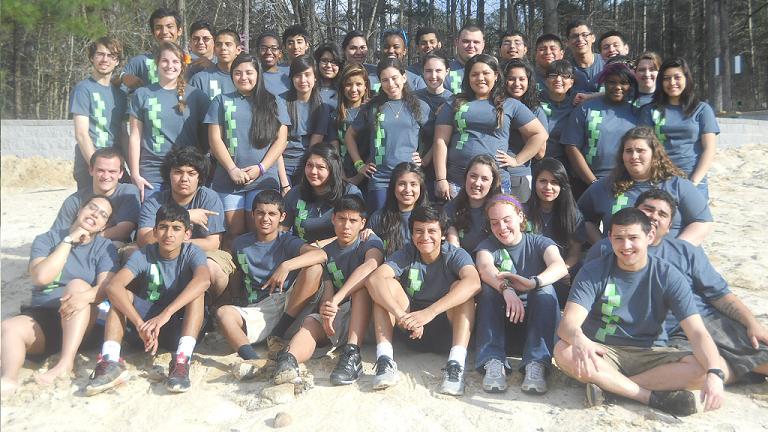June 19, 2011
Liturgical Year A, Cycle I
The Solemnity of the Most Holy Trinity
First Reading: Exodus 34:4b-6, 8-9
Responsorial Psalm: Daniel 3:52, 53, 54, 55, 56
Second Reading: 2 Corinthians 13:11-13
Gospel: John 3:16-18
These readings can be viewed at http://www.usccb.org/nab/061911.shtml.
Gospel Reflection
This Sunday is a very special day in the calendar of the Church, the Solemnity (that is, a very important feast) of the Most Holy Trinity. Before we talk about the Gospel reading, let’s make sure we understand the basics about the Trinity. First, the Trinity is One God, Three Persons – Father, Son and Spirit. We don’t have three God’s, nor do we have a split-personality God. It is One God, plain and simple. Second, God the Trinity as always existed. He didn’t just become a Trinity after Jesus died, nor is the Trinity a Catholic creation. Note, however, that the word ‘Trinity’ is not found in the Bible: The Church has interpreted the Bible to teach that God has One nature made up of Three Persons, and refers to that reality as Trinity. Third, that God is Trinity means that God, at His core, is a family or a community of persons bound together by love. (That explains why family and community are so important to Catholics.) Finally, we have to understand that the Trinity gave you and me our lives so we could spend eternity with the Trinity. The Catholic understanding of salvation is more than just me-and-Jesus: To be saved means we come to share in the life of the Trinity, taking on God’s very nature (2 Peter 1:4). This brings us to the Gospel passage for this Sunday. This section of St. John (which is well-publicized at sporting events with ‘John 3:16’ signs) shows us the great love of the Trinity and what that love is trying to accomplish with us. God loves us so much that He will do anything to get us to eternal life. Eternal life is simply being in a loving relationship with God, and that relationship begins on earth and continues after death. Notice how the Lord opposes the words ‘eternal life’ with ‘perishing’. The very thought of losing eternal life means that we won’t have a relationship with God after we die, and to perish literally means to lose our life with God. We see in this passage that to have eternal life with Christ we have to believe in Him. This doesn’t just mean we believe He exists, but that we believe He is who He says He is (the Son of God) and that we put our trust and faith in Him. If we entrust our lives to Him and allow His life to be in us, we will live with the Trinity forever. That’s a love that is worth dying for! Let us thank God for the awesome promise He makes to us!
Reflection Questions
- Why would the Church use this Gospel passage on Trinity Sunday? What does this passage have to do with the Trinity?
- What comes to mind when you think of ‘eternal life’? At this time in your life, does your relationship with Christ look like it is going towards ‘eternal life’ or towards ‘perishing’? Why?
- How would you explain the Trinity to a non-Catholic? Come up with at least three points about the Trinity. Use the Catechism of the Catholic Church #253-255 to help you formulate your answer.

No comments:
Post a Comment